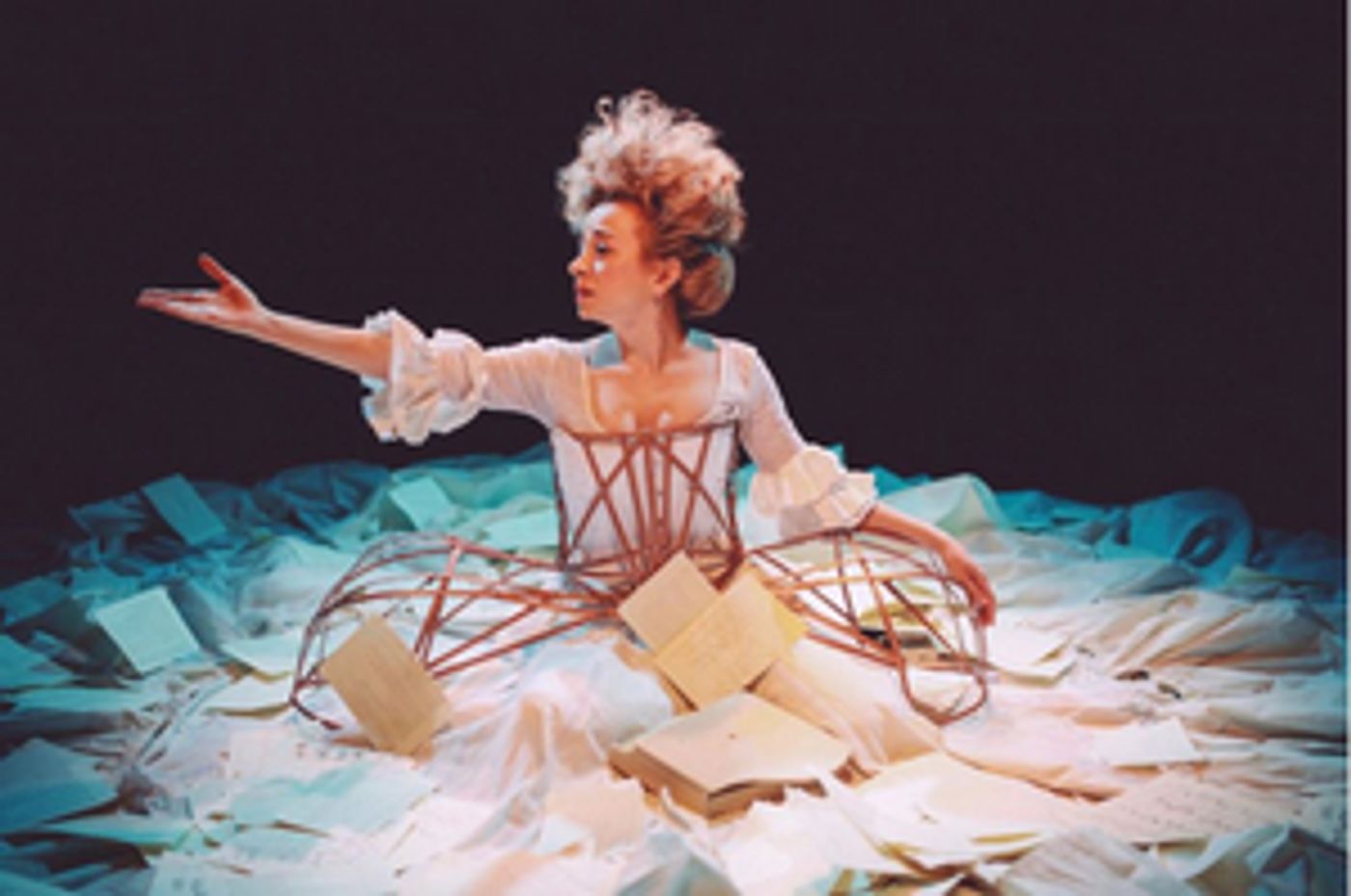Interview: Sylvia Milo of THE OTHER MOZART at Bickford Theater At Morris Museum
 Sylvia Milo, star of The Other Mozart playing this weekend at Bickford Theater recently took the time to answer some questions about the award-winning play based on the true story of the sister of Wolfgang Amadeus, Maria Anna (nicknamed Nannerl).
Sylvia Milo, star of The Other Mozart playing this weekend at Bickford Theater recently took the time to answer some questions about the award-winning play based on the true story of the sister of Wolfgang Amadeus, Maria Anna (nicknamed Nannerl).
Tell our audience a little bit about your background!
I am originally from Poland, I came to the US when I was 15 and to NYC
at 18. I was first a musician, playing the acoustic and electric
violins, I joined rock and jazz bands in NYC. To find out what actors
know about being on stage that musicians may not, I enrolled into an
acting class at Stella Adler Studio. There I was given my first
monologue: Blanche DuBois from Tennessee Williams' Streetcar Named
Desire. My artistic direction came into focus.
I discovered the existence of this other Mozart on a short trip to
Vienna, for the New Crowned Hope festival, celebrating Amadeus
Mozart's 250th birthday. I was thrilled to explore the city following in Wolfgang's footsteps.
At the Mozarthaus Vienna (museum housed inside one of Wolfgang's
apartments), on the exit wall, as if by an afterthought, there was a
little copy of the Mozart family portrait. I saw a woman (with an
enormous hairdo) seated by Wolfgang, at the harpsichord, their hands
intertwined, playing together, looking like equals. I was astonished to discover that Wolfgang wasn't the only child prodigy in the family, that there were two Mozarts. I was astonished
that nobody was telling this story.
Tell us a little about her history! It's a fascinating story.
Maria Anna (Nannerl) Mozart was also a child prodigy, five years older
than Amadeus. Wolfgang began his piano lessons at three years old because he saw his
sister play. The two children were taught together by their father - they received
the same education in music and otherwise. They toured most of Europe
performing together as wunderkinder.
There are reviews praising Nannerl. She was even billed first at the
beginning of the tours. That all stopped once she turned eighteen. A
little girl could perform and tour, but a woman risked her reputation.
She was left behind at home in Salzburg, and her father only took
Wolfgang on the next tours. She never performed outside of Salzburg
again.
She wrote music, which Amadeus praised, but none of her compositions
survived.Perhaps she never showed it to anybody again, perhaps she destroyed
it, maybe we will find it one day, maybe we already did but we
attribute it to Wolfgang.Later in life when somebody would ask her about her talent, she would
reply, "I am only my brother's pupil".
With The Other Mozart I am on a mission to bring this story to as wide
an audience as possible.
The play has had 298 performances to date, including an Off-Broadway
run at HERE, in London at St. James Theatre, in Munich at the Pasinger
Fabrik, and last summer in Hong Kong at the Hong Kong Cultural Center.
We have been touring all around the US for the past six years, and it
was presented in Vienna at the Mozarthaus Vienna (where I first saw
that Mozart family portrait).
The audiences are so interested in this story - most everywhere we go
we sell out the shows. Having the experience of performing the play in Europe, the US and now
in Hong Kong, with further interest in Asia, I see the story is widely
relevant today.
People connect to it in different ways - for some women it hits very
close to home as they see the progress and yet the remaining obstacles
on their career paths in regards to their gender. Some find empathy,
some are moved by the music, or engaged by the history aspect of the
play, some by the visual beauty of the show, or the fascinating story.
People respond very strongly, in an emotional way. To my surprise, men
who have daughters are especially moved by the piece. It's a beautiful
experience for us to connect is such a deep way. Anything else we should know?
I have invited other actresses to play Nannerl, and, together with the
play's directors, I have trained them. Currently Sofi Lambert performs
the play in the US and in Canada in English and French, Daniela Galli
in Portuguese in Brazil, and Anja Bourdais is bringing the play back
to Germany and Austria in Nannerl's native tongue.Virginia Woolf in "A Room of One's Own" imagined what would have
happened if Shakespeare had an equally talented sister. With Nannerl
Mozart we can actually trace what happened, we don't have to imagine.
And it is symbolic of so many other women's stories.
To bring this other Mozart, his sister, to people's minds is to
inspire them, and it brings women into the history of the great. It
also brings awareness to the inequalities that still persist today.
Visit their website for tickets and more information.
https://morrismuseum.org/events/other-mozart/
Videos

